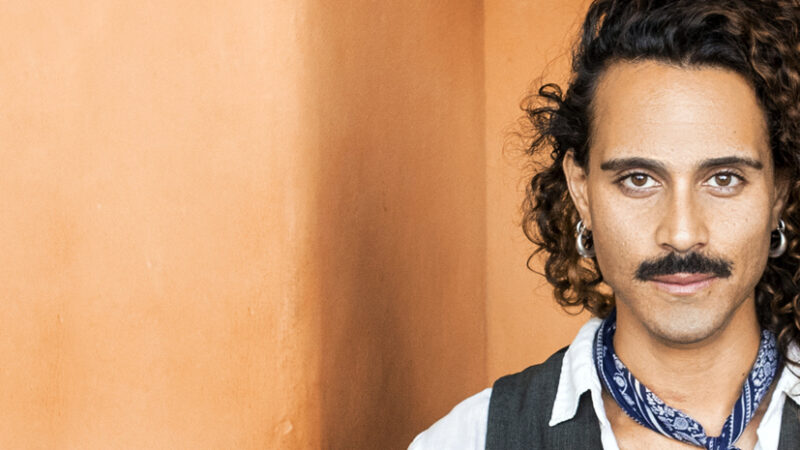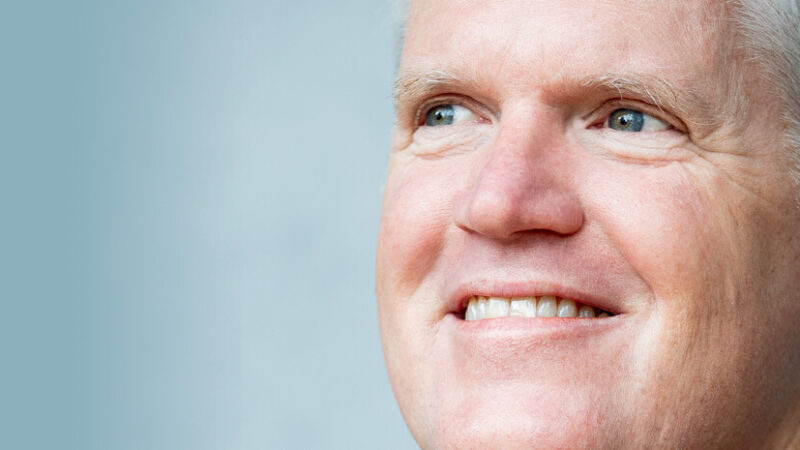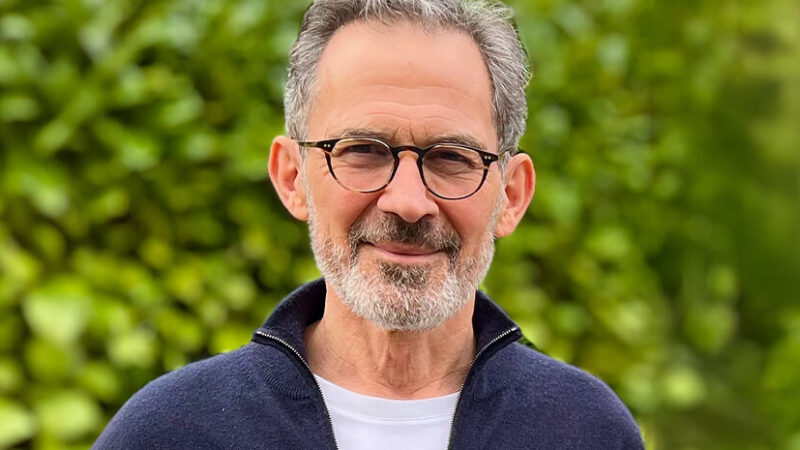-
E117: The Real Work: Letting Go from Within
Michael Singer — October 2, 2025
True spirituality isn’t about mystical experiences or lofty ideals—it’s about honestly facing...
-
Once More: Reflections on Reincarnation and the Gap Between Lives
Tami Simon — September 26, 2025
In this special reflection episode of Insights at the Edge host Tami Simon looks back on her...
-
Honey Tasting Meditation: Build Your Relationship with Sweetness
There is a saying that goes “hurt people hurt people.” I believe this to be true. We have been...
Written by:
Amy Burtaine, Michelle Cassandra Johnson
-
Many Voices, One Journey
The Sounds True Blog
Insights, reflections, and practices from Sounds True teachers, authors, staff, and more. Have a look—to find some inspiration and wisdom for uplifting your day.
Standing Together, and Stepping Up
Written By:
Tami Simon -
The Michael Singer Podcast
Your Highest Intention: Self-Realization
Michael Singer discusses intention—"perhaps the deepest thing we can talk about"—and the path to self-realization.
This Week:
E116: Doing the Best You Can: The Path to Liberation -
Many Voices, One Journey
The Sounds True Blog
Insights, reflections, and practices from Sounds True teachers, authors, staff, and more. Have a look—to find some inspiration and wisdom for uplifting your day.
Take Your Inner Child on Playdates
Written By:
Megan Sherer
600 Podcasts and Counting...
Subscribe to Insights at the Edge to hear all of Tami's interviews (transcripts available, too!), featuring Eckhart Tolle, Caroline Myss, Tara Brach, Jack Kornfield, Adyashanti, and many more.
Most Recent
Sah D’Simone: Becoming Spiritually Sassy: Awaken...
Sah D’Simone is a spiritual guide, meditation teacher, transformational speaker, and bestselling author. Born in Brazil, Sah moved to the US when he was 16. Today, he leads a heart-based healing movement rooted in tried-and-true techniques, pioneering a spiritually sassy approach in which joy and authenticity illuminate the spiritual path. In this podcast, Sah speaks with Sounds True founder Tami Simon about his new book, Spiritually Sassy: 8 Radical Steps to Activate Your Innate Superpowers. Tami and Sah also discuss: the importance of reclaiming beauty, playfulness, and lightheartedness on the spiritual path; what it means to be a “joy activist”; Sah’s journey to becoming a spiritual teacher; the innate goodness within each one of us; forgiving the past; the evolution of Indian teachings in the West; the “spiritually sassy” glossary of terms; and much more.
W. Keith Campbell: The New Science of Narcissism
Dr. W. Keith Campbell is a social psychologist and professor in the Behavioral and Brain Sciences Program at the University of Georgia. Best known for his research and writing on narcissism, Dr. Campbell is the author of several books including The Handbook of Narcissism and Narcissistic Personality Disorder, When You Love a Man Who Loves Himself, The Narcissism Epidemic, and a new book with Sounds True, The New Science of Narcissism: Understanding One of the Greatest Psychological Challenges of Our Time―and What You Can Do About It. In this podcast, Sounds True founder Tami Simon speaks with Dr. Campbell about the latest scientific understanding of narcissism and its various forms, the spectrum of narcissism and Narcissistic Personality Disorder, the “big five” personality traits and the importance of balance, the malleability of our personalities and the possibility for change, and more.
Plants, People, and Cosmic Balance: A Healing Justice ...
Plant medicine has always been the people’s medicine, and flower essences create unique opportunities for issues surrounding accessibility, as essences are extremely safe and can be made rather inexpensively. The shift toward holism—complementary and alternative medicine (CAM) and integrative medicine—and the proliferation of herbal interventions within our health-care system are proof that we are making progress. In light of this, there are a number of dynamic ways we can promote flower essences to be even more accessible and inclusive for people. Even flower essence therapy itself is a modality historically dominated by white men, but increasingly it is being pushed forward by women-identified, LGBTQIA+, and BIPOC healers.
Currently, the alternative healing community is processing its own biases. Much of alternative medicine was developed in the service of the dominant culture, or the patriarchy. Therefore, it hasn’t been a healing space for many groups, including but not limited to women, people of color (BIPOC), LGBTQIA+, people with disabilities, economically oppressed people, neurodiverse people, and (in the United States) non-native English speakers. In the words of Cara Page, a founding member of Kindred Southern Healing Justice Collective, healing justice “identifies how we can holistically respond to and intervene on generational trauma and violence, and to bring collective practices that can impact and transform the consequences of oppression on our bodies, hearts, and minds.”

One of the main themes of The Bloom Book involves balancing duality, which means challenging the perpetuation of oppressive systems. Unless we are actively engaged in dismantling racism, sexism, homophobia, transphobia, xenophobia, and ableism, we are merely reinforcing the power structures we are claiming to challenge. As models of healing justice are emerging, many organizations and community collectives are generating their own missions and value statements from which to work. Meanwhile, practitioners—especially white practitioners like me—have to ask ourselves:
How is my work a function of my privilege?
Where can I be doing better?
Does my practice truly support inclusivity, diversity, and accessibility?
The working definitions of healing and trauma are also evolving. Within a healing justice framework, one can see how, by understanding trauma merely as “an emotional response to a terrible event,” we are ignoring a more inclusive interpretation that includes the cumulative and historical trauma of colonization. In the last decade, science has validated that trauma is intergenerational and historical. Likewise, many traditions include community in what constitutes emotional and spiritual healing, whereas Western models of mental health are focused exclusively on the individual self.
When you open yourself up to the plant kingdom, new awareness can develop. You can become more empathic, which sounds pleasant in theory, but can be overwhelming because now you’re not just experiencing more of your own feelings, but the feelings of others as well. If you’re committed to applying a healing justice framework in your work, you will likely expose new trauma and have to reckon with your own privilege, which can be painful. You could develop more attunement with nature, which also can feel wonderful and, because of the tragic state of our Earth, completely disorienting. At this time, we are experiencing a heightened polarity between the light and the dark. We are being asked to hold a neutral space for all this duality and to have more compassion for all life. Flower essences enhance the energetic interconnection between all living things and so are especially well suited to support an expansion of consciousness.
Understanding how we function within—and our responsibility to—the collective is important because none of us operates alone. If you forget what you derive from the collective, you assume you don’t owe it anything and exist separately from everyone. Much of the privileged world enjoys the benefits of being part of the collective, whether we are conscious of it or not: rights, amenities, protection, accessible health care, clean drinking water, electricity, and so on. So, those with the material upper hand at this time have a special responsibility to the rest of those sharing the Earth.
Within a healing justice framework, we must not only question our privilege as white people, we must elevate BIPOC leadership within all the transformative justice movements. We are all dependent on one another to collectively wake up and heal.
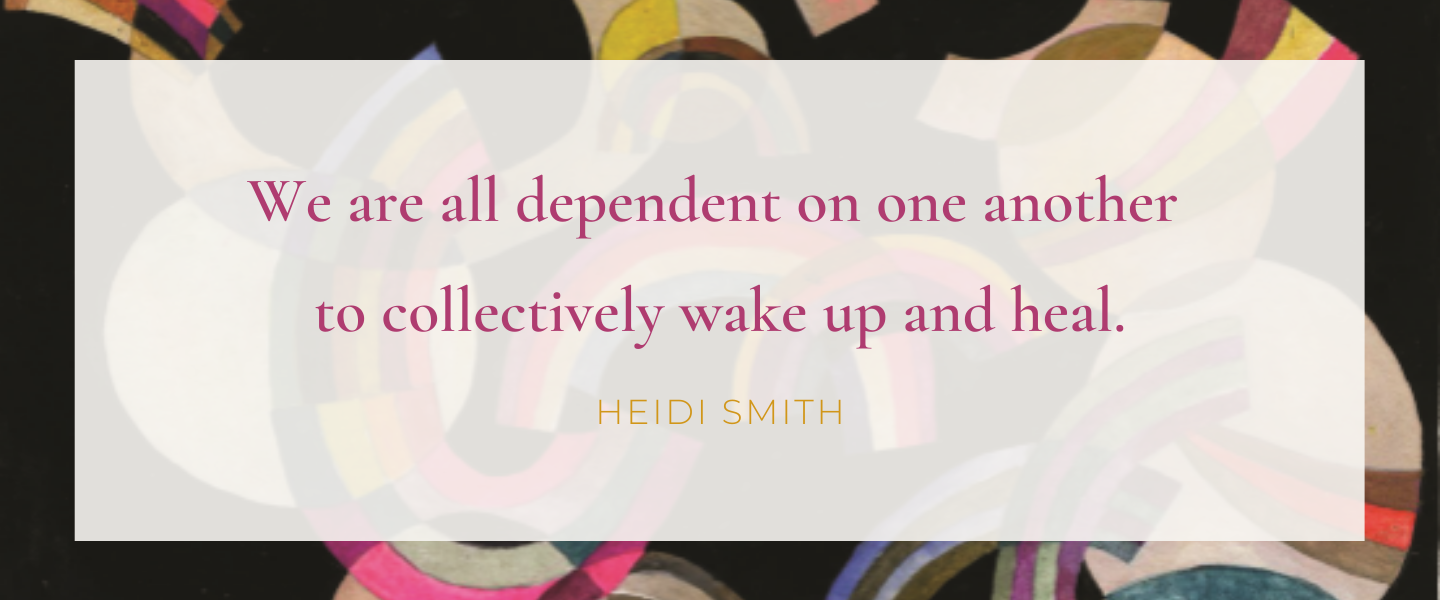
In this way, it is an exciting time for the community of herbalists and flower essence practitioners. Modalities that are so helpful in bringing people into balance are themselves coming into greater balance. A sign of hope within an era of great hope. The ancient wisdom explored in The Bloom Book supports that the power of the plants is coming through in dynamic new ways. This text exists, in part, to provide more context around the validity and potency of the flowers. The spectrum of human emotional experience is here for our development and delight.
The Absence of Women-Identified, WOC, and QTBIPOC Healers Throughout History
Missing from our Western history books are most of the contributions by women-identified healers through the ages. Even more scarce are WOC, and most scarce are queer and trans people of color (QTBIPOC) within the codex of Western medical history. The misogyny of the burgeoning patriarchy from ancient Greece spread throughout Europe, Africa, the Americas, and the rest of the world through colonization by white settlers. The suppression of women healers in Europe and the Americas coincided with the rise of the ruling class, capitalism, and the privatization of medical care, away from folk-healing traditions—traditions that women played a huge role in preserving and advancing. Gender seemed to be less of a construct throughout many parts of the ancient world, as there are significant written reports of intersex and gender-fluid healers. In many cases, those who exhibited androgyny were known as having special healing powers because of their ability to connect with both masculine and feminine energy.

As historical contexts are becoming more inclusive and less Eurocentric, there is more room for the theory around matriarchal-centered civilizations being much more prominent than previously thought. Senegalese anthropologist and historian Cheikh Anta Diop felt that, historically, most of Africa was matriarchal in organization. Colonizers were tremendously misogynistic, which holds much information for us to ponder as we consider our connection to the feminine and the history of medicine.
The lack of representation of women and WOC healers in the historical literature of medicine is decidedly a Western trait. Not only is much history transmitted orally and through practices and traditions, but the written history is also a very biased account, formulated in large part by, and for, white men. While our participation in medicine and healing traditions has been historically restricted in the West, women have long been associated with healing, especially within the domains of life and death—as midwives and compassionate caregivers helping to bring new life and support the soul into the afterlife. Women healers have traditionally addressed the issues and needs of populations that our culture typically shames and would rather ignore. Written accounts are limited, but we do have a record of a talented few. We must honor the oral traditions that are not meant to be shared (by me anyway) with the mainstream. There is a protection in keeping knowledge hidden from the masses. This wisdom is secured within the light lineage of all healers.

Conclusion
The social and healing justice movements have affected me deeply, and it is my sincere hope that we can continue to decolonize and dismantle where dominant systems are limiting the positive proliferation of alternative healing and flower essence therapy to make them more accessible and inclusive. The more we come into balance in this way, the more transformation is available to us all, our communities, and our Earth—and the more we maintain plant medicine as medicine for all people.
Healing Justice Flower Essence Allies
There are a number of herbalists such as Karen Rose of Sacred Vibes Apothecary, Jennifer Patterson of Corpus Ritual (also a Bloom Book contributor), Lauren Giambrone of Goodfight Herb Co., and Amanda David of Rootwork Herbals, (to name a few), who have been speaking on the subject of healing justice for quite some time, and I am grateful for their leadership and inspiration. Healing justice business models such as that of Third Root, a worker-owned community center that provides collaborative, holistic health care in Brooklyn, offers a standard that everyone in the healing arts should aspire to.
I offer some essences below that are wonderful to use in process groups or healing circles that center on antiracism and anti-oppression work. Some flower allies to assist you as you dig deeper into this rich and rewarding terrain are:
Delta Gardens lemon balm—a wonderful essence for when you are immersed in deep work, to keep calm and carry on
Delta Gardens valerian—for any resistance to change, to be able to take in and assimilate new information
Flower Essence Society quaking grass—“harmonious community consciousness,” letting go of personal attachments in social groups
Flower Essence Society lupine—seeing beyond the level of self, seeing self as part of the whole
Flower Essence Society or Delta Gardens echinacea—integration of those parts of the self that may have been repressed
Flower Essence Society or Delta Gardens borage—to support the heart and offer courage
Bach Original Flower Remedies water lily—for humility and wisdom in communication, to heal the perceived separation we feel from others based on race, class, or gender
Flower Essence Society pink yarrow—for emotional vulnerability, assists in discerning what is your responsibility to emotionally process
Additional Information on Healing Justice
A Not-So-Brief History of the Healing Justice Movement, 2010-2016
What Is Healing Justice?—Healing by Choice Detroit
Healing Justice: Holistic Self-Care for Change Makers—Transform Network
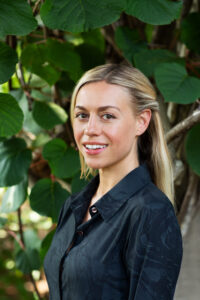
Heidi Smith, MA, RH (AHG), is a psychosomatic therapist, registered herbalist, and flower essence practitioner. Within her private practice, Moon & Bloom, Heidi works collaboratively with her clients to empower greater balance, actualization, and soul-level healing within themselves. She is passionate about engaging both the spiritual and scientific dimensions of the plant kingdom, and sees plant medicine and ritual as radical ways to promote individual, collective, and planetary healing. She lives in Brooklyn, New York, with her partner and two cats. For more, visit moonandbloom.com.
Learn More
Sounds True | Amazon | Barnes & Noble | Bookshop
Customer Favorites
Rupert Spira: The Quiet Joy of Being
What is the treasure that we all seek? What is it that we are looking for above all else? Contemporary spiritual teacher and author Rupert Spira believes that it’s the feeling of sufficiency, of ease, of peace—or the realization of our innermost nature as being. In this podcast that is at once expansive and experiential, Tami Simon speaks with Rupert about his book You Are the Happiness You Seek and the insights he has gleaned through a lifetime of spiritual exploration and practice.
Tune in for a liberating conversation covering the practice of pausing or “going back to being”; letting go of resistance and turning toward our unhappiness; bringing a complete “yes” to your current experience; the inquiry, who is the one that’s experiencing?; the pure “I Am”; the original ADD: Awareness Deficit Disorder; the problem with the word “enlightenment”; recognizing the gaps between our thoughts and feelings; why what happens to the body doesn’t happen to our being; the absolute level and the relative level; the practical implications of deepening our recognition of being; love: the felt sense of our shared being; freedom from “the tyranny of ego”; and more.
Note: This episode originally aired on Sounds True One, where these special episodes of Insights at the Edge are available to watch live on video and with exclusive access to Q&As with our guests. Learn more at join.soundstrue.com.
A free video from our dear friend Thich Nhat Hanh
Enjoy this lovely video from our dear friend, Thich Nhat Hanh, recorded at the Body and Mind are One retreat in Colorado in the summer of 2011. There is something about Thich Nhat Hanh’s presence that just allows for an outpouring of mindfulness, love, kindness, and compassion. When we at Sounds True reflect upon mindfulness, we think immediately of our dear friend, Thich Nhat Hanh, and how fortunate we are to have the opportunity to work with him, something we’ve been blessed with over the last 20+ years. In so many ways, he embodies the work we’re doing here: our values, vision, and mission.
The beautiful and inspiring footage we gathered from Body and Mind are One was edited into a seven-hour online course, which you can enjoy from the comfort of your own home, on a schedule that works for you. More than an ordinary training course in mindfulness, Body and Mind Are One is at once a living transmission of insight from this beloved Zen master and a practical teaching series covering fundamental principles for a joyful life.
Presence Through Movement
Tami Simon speaks with Kim Eng, a counselor, spiritual teacher, and Eckhart Tolle’s life and teaching partner. Kim’s “Presence Through Movement” workshops focus on the integration of mind, body, and spirit. With Sounds True, she has created two Presence Through Movement DVD programs, as well as the audio programs Meditations for a New Earth and Resist Nothing. In this episode, Tami speaks with Kim about what Eckhart Tolle calls the pain-body—an accumulation of the pain and unresolved emotions of our past that can take on a life of its own—and how we can dissolve it through movement. She also spoke about discovering our inner aliveness, and how we can stay present through grief and loss. (51 minutes)

